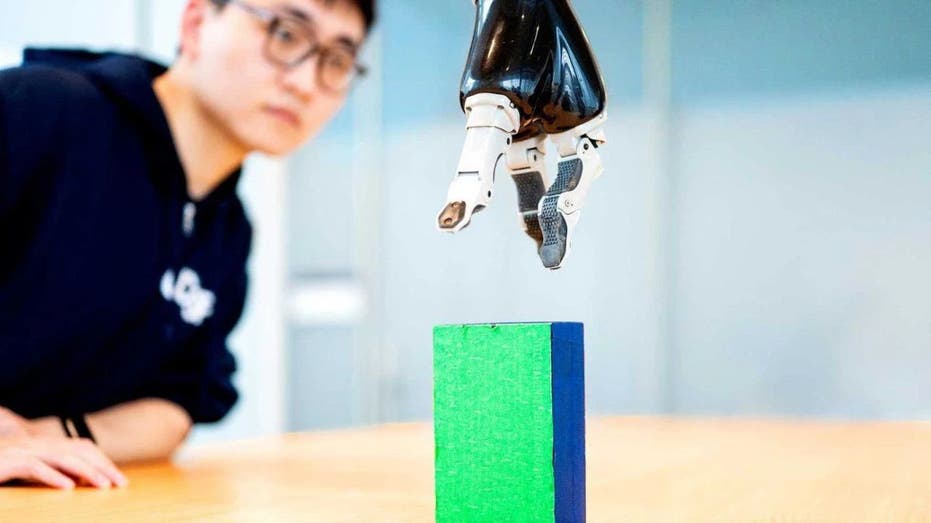- by foxnews
- 08 Apr 2025
AI enables paralyzed man to control robotic arm with brain signals
The combination of artificial intelligence and neuroscience allows a paralyzed man to manipulate a robotic arm by using his brain to imagine movements.
- by foxnews
- 31 Mar 2025
- in technology

Researchers at UC San Francisco have achieved a remarkable breakthrough in brain-computer interface (BCI) technology, enabling individuals with paralysis to control robotic devices through thought alone.
The key lies in the AI model's ability to adapt to subtle changes in brain activity over time. As individuals repeatedly imagine movements, the AI refines its understanding of these neural signals, enabling more precise control of robotic devices. Dr. Karunesh Ganguly, neurologist and professor at UCSF, emphasized that this adaptive learning between humans and AI is critical for achieving lifelike functionality in neuroprosthetics.
To address this challenge, Ganguly and his team studied a participant who had been paralyzed by a stroke years earlier. Sensors implanted on the surface of his brain recorded neural signals as he imagined movements like grasping or lifting objects. Over two weeks, these signals were used to train the AI model to account for daily shifts in brain activity patterns.
Initially, the participant practiced controlling a virtual robotic arm that provided feedback on his imagined movements. This training helped refine his ability to visualize precise actions. Once he transitioned to using a real robotic arm, he quickly mastered tasks such as picking up blocks, opening cabinets and even holding a cup under a water dispenser.
Months later, the participant retained his ability to control the robotic arm with minimal recalibration, highlighting the long-term reliability of this BCI system.
This groundbreaking technology has profound implications for individuals with paralysis. Tasks like feeding oneself or accessing water independently could drastically improve quality of life. Dr. Ganguly is optimistic about refining the AI further to enhance speed and fluidity in movement while testing the system in home environments.
The integration of adaptive AI into BCIs marks an exciting new chapter in neuroprosthetics, offering hope for millions living with paralysis worldwide. With continued advancements, these systems could soon restore essential functions and independence, transforming lives in ways once thought impossible.
Follow Kurt on his social channels
Answers to the most asked CyberGuy questions:
New from Kurt:
Copyright 2025 CyberGuy.com. All rights reserved.
- by foxnews
- descember 09, 2016
Ancient settlement reveals remains of 1,800-year-old dog, baffling experts: 'Preserved quite well'
Archaeologists have recently unearthed the remarkably well-preserved remains of a dog from ancient Rome, shedding light on the widespread practice of ritual sacrifice in antiquity.
read more





